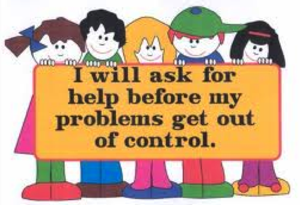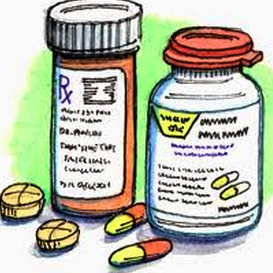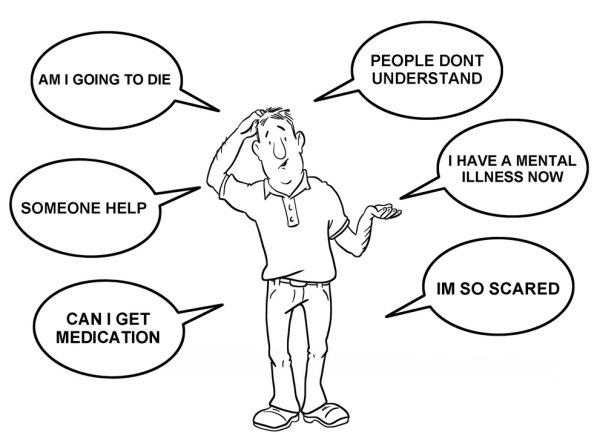I missed my dose / want to stop | Serotonin Withdrawal symptoms

So, what happens when I miss a dose?
What happens when I stop taking my antidepressant?
These questions are very real for those on medication, and we should talk about them intelligently to provide the best information to make quality decisions with the help of our care givers.
After some people stop (or even just missing a dose) taking a type of antidepressant known as a selective serotonin reuptake inhibitor (SSRI), they experience a variety of symptoms.
These symptoms may include “a flu-like reaction, as well as a variety of physical symptoms, that may include headache, gastrointestinal distress, faintness and strange sensations of vision or touch.” Basically, you feel like ‘crap’.
This common phenomenon is known as SSRI discontinuation syndrome. (It may also be known as SSRI withdrawal syndrome.)
Discontinuation symptoms typically arise within days after stopping the medication, particularly if it was stopped abruptly. Stopping a high dose of a relatively short-acting drug also can bring on symptoms.
What makes this difficult is that it is hard to differentiate discontinuation syndrome from return of depression symptoms. While the percentage of people that experience discontinuation syndrome are low, it is very important to be aware and get help to get through it (plus not make snap judgments that can make things worse).
So, you want to get off your medication, please note that anxiety and depressed or irritable mood are common and make it hard. This is precisely why it is very important to talk to a professional who knows, understands, and has experience in this area.
Depending on whether you are taking short acting or longer acting medication will also have an influence on how your body reacts, symptoms can happen with any antidepressant, the risk is greater with the following classification of drugs:
These include citalopram (Celexa), escitalopram (Lexapro), fluoxetine (Prozac and others), fluvoxamine (Luvox), paroxetine (Paxil), and sertraline (Zoloft). Inhibitors of inactivation of both norepinephrine and serotonin (SNRIs). These include chlompramine (Anafranil), venlafaxine (Effexor) and desvenlafaxine (Pristiq). Such drugs are prescribed more often for depression or severe anxiety disorders, so the withdrawal phenomenon is more common.
Whether you experience discontinuation syndrome after stopping an SSRI depends on several factors. These include the amount of time you’ve taken the medication, your dosage level, and the pill’s half-life (how quickly it is eliminated from your body). For instance, Prozac, which has about a five-week half-life, appears to cause discontinuation much less often than drugs with shorter half-lives, such as Paxil.
If discontinuation symptoms last more than a week or two, call your prescriber or doctor. You may be in the early stages of a relapse.
Preventing Discontinuation Syndrome | Talk to your prescriber first
There are ways that you can prevent or reduce discontinuation symptoms.
Don’t stop a psychotropic medicine abruptly. People may stop their medicine abruptly for various reasons, including feeling better or experiencing unpleasant side effects, as well as simply forgetting to refill a prescription.
But stopping some medicines abruptly or “cold turkey” can cause discontinuation or withdrawal symptoms.
Talk to your prescriber / doctor. If you’d like to stop your antidepressant, first talk it over with your prescribing clinician. Voice any concerns you have, and do not attempt to stop on your own.
Getting better is a joint project with you and your prescriber, do not be afraid to ask the tough questions, chances are that your prescriber has already had experience with other patients (just like you) and will be able to help you get to that better place and be happier and healthier.
The real question being addressed through all this is ‘Is this a good time to be changing your prescribed medicine, remember the goal here is improved lifestyle and long term benefits. Your past medical history, current status and well-being all should be considered and discussed with your prescriber prior to making any major changes.
Practicing healthy habits is key, use the experience of your prescriber to reach those goals. If you are under a lot of stress, not sleeping well, not eating appropriately, these factors will all play into taking action to change your medication.
 Increasing anxiety does not help, your health is number one, educate yourself with the help of others.
Increasing anxiety does not help, your health is number one, educate yourself with the help of others.



